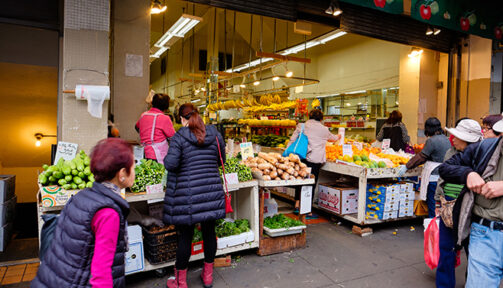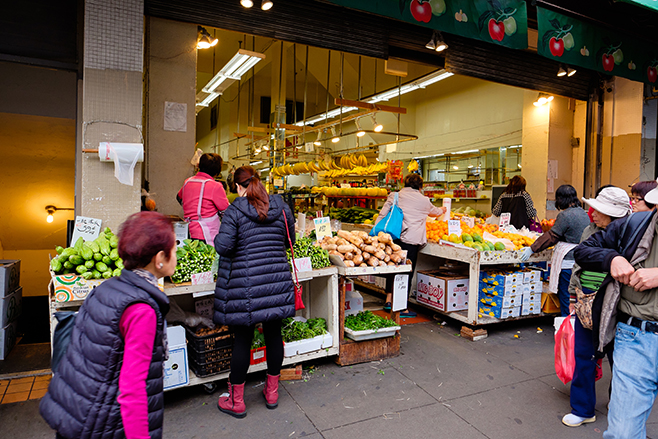An interdisciplinary team of University of California scientists and collaborators has won a prestigious award from the National Science Foundation (NSF) Convergence Accelerator for developing a novel solution to the nation’s food security crisis. With funding from the NSF and the U.S. Department of Agriculture, the team is building an AI-enabled platform called NOURISH that equips small business owners in food deserts with the resources they need to provide healthy, sustainable food to people in their communities.
Twenty-four million Americans live in food deserts where ultra-processed foods are abundant and fresh food is scarce, giving rise to large health disparities in diabetes and related cardiometabolic diseases. The NOURISH platform provides small business owners in these communities with access to loans and grants, online maps that optimize the placement of fresh food outlets for foot traffic, help with navigating the convoluted business permitting process, and AI-enabled guidance on affordable ways to locally source fresh ingredients.

“Our solution complements government efforts to get fresh food into food deserts by incentivizing grocery stores and big box outlets to sell more fresh food,” says Laura Schmidt, PhD, MSW, MPH, a professor of health policy studies at UCSF and principal investigator for the project. “But our approach builds upon the often-overlooked assets of these communities, including the entrepreneurial talent of small business owners, rich and diverse food heritages, and an unmet demand for fresh food.”
A team of computer scientists, software developers and students at the Supercomputer Center of UC San Diego, led by Amarnath Gupta, PhD, MS, are combining government, private sector and crowdsourced information to create dynamic, interactive maps of local food systems across the United States. Accessible from a mobile phone in multiple languages, the NOURISH platform will include patented recommendation algorithms that customize business plans based on local consumer preferences for price, convenience and flavor. “Recent advances in scalable data systems and artificial intelligence give us an unprecedented opportunity to use NOURISH to democratize data access, creating a more level playing field between large food companies and small businesses,” Gupta notes.
Small businesses have relatively low start-up costs, are adaptive to local needs, and can help to keep economic resources circulating within low-income communities. Community partners assisting with NOURISH also emphasize the benefits of promoting culturally appropriate food. Paul Watson, a California-based food equity advocate and director of community engagement for NOURISH, says, “A major asset of so-called ‘food deserts’ are immigrants who bring diverse cuisines featuring traditional dishes that are typically healthier than the standard American diet. This platform will help people from the community make wholesome food for the community.”
Other lead scientists on the team include Keith Pezzoli and Ilya Zaslavsky, PhD (UC San Diego), Hans Taparia (New York University), Tera Fazzino, PhD (University of Kansas), and Matthew Lange (IC-FOODS). From 2024 to 2025, the NOURISH team will test the platform in lower-income areas within San Diego and Imperial Counties in California and then scale it nationally.
Direct inquiries to Nourish@ucsf.edu.


Banner photo: Joshua Rainey Photography/Shutterstock

